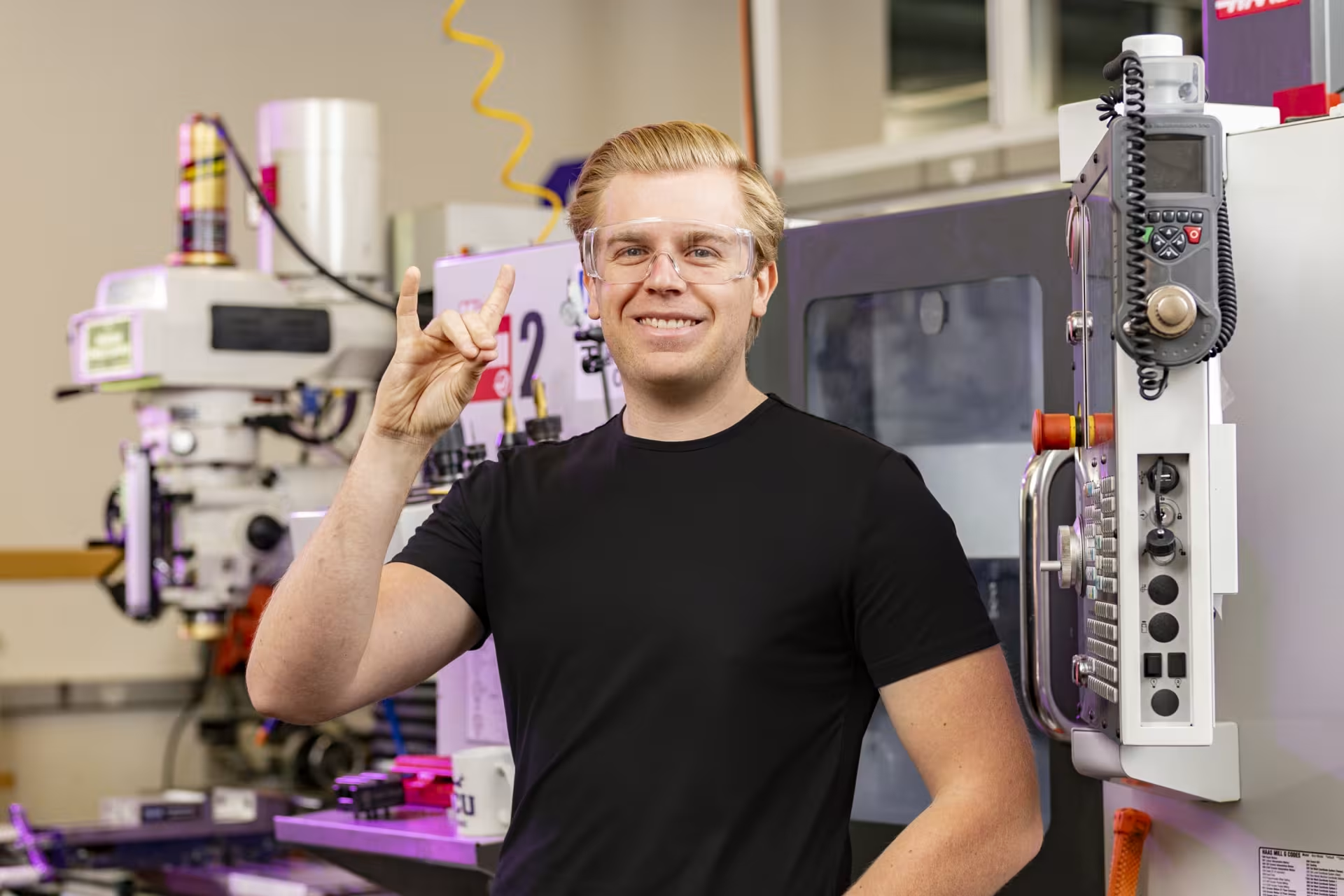


Engineers are charged with solving problems and improving the quality of life for society by applying scientific and mathematical principles. An engineer might work on everything from renewable energy technology that helps mitigate climate change to prosthetic legs to give amputees the opportunity to walk again. The specific tasks an engineer may do depend on their subfield and the project they’re working on.
No two days are the same for an engineer, as they may work on a variety of projects — everything from designing household products to troubleshooting problems in aircraft and spacecraft. An engineer uses critical thinking, analytical reasoning and creativity to develop solutions to problems.
In general, they may do the following:(See disclaimer 3)
Analyze Data
Engineers conduct analyses of existing structures, systems and devices, and they also analyze various problems.
Design Systems and Components
Engineers design new equipment, devices or systems that are intended to solve problems or improve quality of life.
Redesign for Efficiency and Performance
Engineers may also redesign existing equipment, devices or systems in order to improve them.
Develop Systems or Products
Engineers develop prototypes of their designs to test them and analyze the results.
Supervise Engineering Teams and Tasks
When the design and development processes are complete, engineers may supervise the manufacturing process, troubleshooting problems along the way.
An engineer is a professional problem solver who applies scientific and mathematical principles to the design, development and construction of structures and systems. Engineers work across a wide range of industries, developing blueprints for new applications and systems or identifying improvements for existing ones.
There are a number of different types of engineers. Some of the most common subfields of engineering include:(See disclaimer 1)
Mechanical engineering
Electrical engineering
Industrial engineering
Aerospace engineering
Biomechanical engineering
Chemical engineering
Biomedical engineering
Computer engineering
The first known engineer in history, Imhotep, lived around 2550 BCE and designed the Step Pyramid in Egypt.(See disclaimer 2)
After gaining some work experience, an engineer may qualify to earn their PE license, thereby providing a pathway to position themselves for potential career advancement. An experienced engineer may eventually become a manager or administrator. In addition, it's important to note that while many four-year colleges and universities require a doctorate for teaching at that level, there are alternative paths. For instance, individuals can opt to earn a graduate degree in engineering, which may open doors to pursue research and development programs or to apply for a faculty position within an engineering department at a university.(See disclaimer 5)

Stay informed with the latest insights and updates on the engineering field.

All types of engineers are problem-solvers at heart — individuals who look for ways to improve existing technology or to create new technologies that are intended to solve problems or improve some aspect of society.

Mechanical engineering is the art of using problem-solving techniques and applying them to the design and manufacturing of an object.

Are you passionate about flight and space? Do you have a knack for mathematics and an eye for detail? If so, you might consider pursuing a career as an aerospace engineer.
Salary expectations can vary depending on a number of factors, including years of experience, additional certifications and licensure status, as well as the employer. In addition, the median annual wage for engineers can vary depending on their subfield. According to the BLS, mechanical engineers have a median annual wage of $99,510 as of May 2023.(See disclaimer 7)
The specific job growth rate for engineers varies depending on their subfield. In mechanical engineering, the job growth rate is much faster than average, according to the BLS. The BLS Occupational Outlook Handbook estimates job growth for mechanical engineers to be 11% from 2023 to 2033, indicating that about 32,100 new jobs are estimated to open in the subfield.(See disclaimer 8)
A variety of industries and companies rely on the work of skilled engineers. These include:(See disclaimer 9,10)
Manufacturing facilities
Manufacturing companies rely on engineers to develop or improve equipment and systems.
Research labs
An engineer may work in a research lab, focusing on design and development.
Median annual wage for mechanical engineers as of May 2023(See disclaimer 7)
Estimated job growth for mechanical engineers from 2023 to 2033(See disclaimer 8)
Computer companies
Some engineers specialize in software or hardware engineering, developing and enhancing systems for computer companies.
Construction sites
Some engineers split their time between the office and remote locations, like construction sites.
Healthcare companies
Biomedical engineers develop and troubleshoot biomedical equipment, working on devices like diagnostic machines and artificial body parts.
Oil and gas extraction
Petroleum engineers collaborate with geologists to coordinate and oversee drilling operations.
Although specific skills can vary depending on the engineering specialization, many skills are applicable to many subfields. Engineers need strong technical skills, of course, but transferable soft skills are also helpful.
The skills that can benefit an engineering professional include:(See disclaimer 4,5)

It’s possible to earn a general bachelor’s degree in engineering that doesn’t include a concentration in an engineering subfield. However, it may be ideal to determine which engineering subfield appeals to you most, and then to earn a degree with a concentration in that area. This allows opportunities to develop specialized knowledge in your chosen subfield.
As part of our engineering programs, you will engage in a blend of classroom instruction and hands-on projects through practical problem-solving and experiential learning activities. You can expect to be challenged to develop innovative designs that demonstrate what you’ve been taught.
A typical engineering program covers a range of topics, such as:
Robotics
Project management
Mechatronics
Aerospace
31 Matching Degrees
Once you know more about how to become an engineer, you may find it easier to determine if this career path could be right for you. Becoming an engineer generally involves the following steps:
High School Diploma
College Degree
Undergraduate Certificates
Internships
Entry-Level Roles
Professional Certifications

Start shaping the future with innovative solutions. Apply now to Grand Canyon University’s engineering programs.